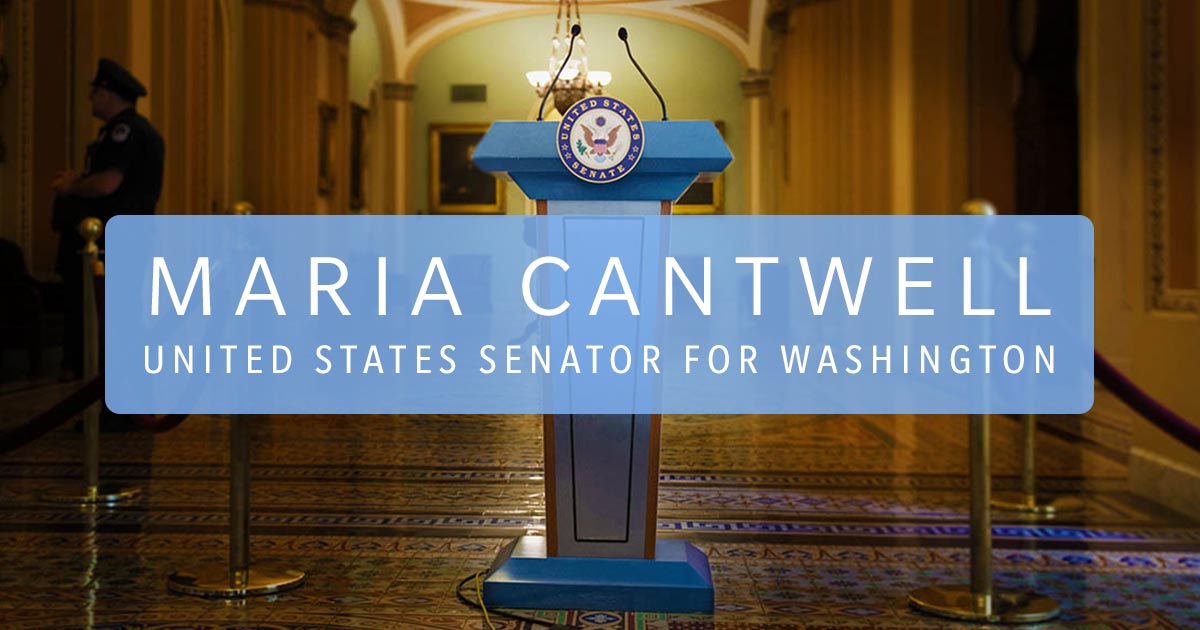Source: United States Senator for Massachusetts Ed Markey
Right to Contraception Act would protect statutory right to contraception as Supreme Court threatens to roll back fundamental rights in the wake of Dobbs decision
Ninety percent of Americans support access to all forms of birth control; bill backed by more than half of the Senate Democratic caucus
Bill Text (PDF) | Press Conference (VIDEO)
Washington (June 14, 2023) – Senators Edward J. Markey (D-Mass.), a member of the Senate Health, Education, Labor and Pensions (HELP) Committee, Mazie Hirono (D-Hawai’i) and Tammy Duckworth (D-Ill.) and Congresswoman Kathy Manning (NC-06) today announced the reintroduction of the Right to Contraception Act, legislation that would codify and strengthen the right to contraception, which the Supreme Court first recognized more than half a century ago in its Griswold v. Connecticut decision. Enshrining the right to contraception into federal law would reverse steps already taken by Republicans in states across the country to restrict access to contraceptives and ensure that any future attempt by the far-right majority on the Supreme Court to overturn Griswold would not endanger access to this essential health care.
The lawmakers first introduced the legislation last July in the wake of Justice Clarence Thomas’s concurring opinion in Dobbs v. Jackson Women’s Health Organization — which overturned Roe v. Wade and overturned the constitutional right to an abortion. In his concurring opinion, Justice Thomas urged the Court to “reconsider” its substantive due process precedents, including Griswold.
“The right to contraception is the right to essential health care, yet extremist judges and radical Republicans continue to threaten access for millions of Americans. We cannot stand by as extremists continue to undo decades of precedent and progress,” said Senator Markey. “Extremist Republicans need to get out of the waiting room and start representing what the vast majority of Americans want: to let health care providers and patients make decisions about what is best for themselves. Contraception access shouldn’t be controversial, and Congress must use this moment to demonstrate clearly that we will act to protect people’s health. I will continue to fight to guarantee the right to contraception into law so that not even the radical-right majority on the Supreme Court can strip it away.”
“Birth control is key to ensuring that women are in control of their own health, bodies, and futures. The Right to Contraception Act safeguards Americans’ ability to obtain this essential reproductive health care, without political interference,” said Congresswoman Kathy Manning. “Last year, this critical legislation passed the House with bipartisan support and ninety percent of Americans agree: Americans should have the right to access all forms of FDA-approved birth control. I’m proud to lead this legislation and I will continue fighting to ensure that extreme state legislatures and radical justices cannot strip Americans of their access to birth control.”
“Nearly a year after the Supreme Court’s devastating decision to overturn Roe v. Wade, Republicans continue to obsess over controlling women’s bodies, further restricting reproductive health care and threatening access to contraception,” said Senator Hirono. “The right to contraception is a fundamental right, central to one’s privacy and well-being. I am proud to reintroduce this bill, which will help protect access to contraception and the ability of every individual to make decisions about their bodies and their futures.”
“The Supreme Court throwing out Roe v. Wade was so much more than a right-wing attack on the right to abortion—it was also an attack on every American’s right to access to birth control, plan B and other contraception in order to further control women’s bodies,” said Senator Duckworth. “I refuse to let my daughters grow up in a world with fewer rights than I had. It is as important as ever that the Senate acts to codify the right to contraception into law so that every American in every state—regardless of their skin color, zip code or income—has equal access to basic, necessary healthcare and I’m proud to join Senators Markey and Hirono in this effort to do just that.”
“Millions of people use contraception and have been for decades, and the vast majority of Americans support the right to birth control,” said Senator Murray. “But, as we saw all too clearly with Republicans’ relentless fight to overturn Roe, far-right Republicans just don’t care if they are ignoring the clear majority of Americans. They don’t care if women want to make their own decisions about their bodies, their families, and their futures. And they don’t care how long an established right has been on the books—they will still fight to overturn it. We cannot meet this moment with empty words—we have to take meaningful legislative action. That’s why the Right to Contraception Act is so important.”
Although nine out of 10 American adults support access to all forms of birth control, several states restrict access to contraceptives by eliminating public funding for it, defining abortion broadly enough to include contraception, and allowing health care providers to deny service related to contraception on the basis of their own beliefs. Attacks on health care, especially reproductive health care, fall hardest on Black, Brown, Indigenous and immigrant communities, as well as LGBTQ+ people, people with disabilities, low-income people, and those living in rural and underserved areas.
A copy of the legislation can be found HERE.
Specifically, the Right to Contraception Act would uphold access to contraception by:
- Guaranteeing the legal right for individuals to get and use contraception and for health care providers to provide contraceptives, contraception, and information, referrals, and services related to contraception;
- Prohibiting the federal government or any state from administering, implementing, or enforcing any law, rule, regulation, standard or other provision that would prohibit or restrict the sale, provision, or use of contraception; and,
- Allowing the Department of Justice (DOJ), providers, and individuals harmed by restrictions on contraception access made unlawful under the legislation, to go to court to enforce these rights.
More than half of the Senate Democratic caucus backs the Right to Contraception Act, including Senators Tammy Baldwin (D-Wis.), Michael Bennet (D-Colo.), Richard Blumenthal (D-Conn.), Cory Booker (D-N.J.), Sherrod Brown (D-Ohio), Maria Cantwell (D-Wash.), Ben Cardin (D-Md.), Tom Carper (D-Del.), Catherine Cortez Masto (D-Nev.), Tammy Duckworth (D-Ill.), Dianne Feinstein (D-Calif.), John Fetterman (D-Pa.), Kristen Gillibrand (D-N.Y.), Martin Heinrich (D-N.M.), John Hickenlooper (D-Colo.), Mazie Hirono (D-Hawai’i), Tim Kaine (D-Va.), Bob Menendez (D-N.J.), Jeff Merkley (D-Ore.), Patty Murray (D-Wash.), Alex Padilla (D-Calif.), Jack Reed (D-R.I.), Bernie Sanders (I-Vt.), Brian Schatz (D-Hawai’i), Jeanne Shaheen (D-N.H.), Tina Smith (D-Minn.), Debbie Stabenow (D-Mich.), Chris Van Hollen (D-Md.), Raphael Warnock (D-Ga.), Elizabeth Warren (D-Mass.), Peter Welch (D-Vt.), Sheldon Whitehouse (D-R.I.), and Ron Wyden (D-Ore.).
In the House, the bill is supported by 127 members.
The Right to Contraception Act is endorsed by Advocates for Youth, AIDS United, American Atheists, American College of Nurse-Midwives, American College of Obstetricians and Gynecologists, Americans for Contraception, Association of Maternal & Child Health Programs, Catholics for Choice, Center for American Progress, Center for Biological Diversity, CenterLink: The Community of LGBTQ Centers, Coalition to Expand Contraceptive Access, Contraceptive Access Initiative, Equality California, Girls Inc., Hadassah, House Pro-Choice Caucus, Ibis Reproductive Health, Interfaith Alliance, Jacobs Institute of Women’s Health, Minority Veterans of America, NARAL Pro-Choice America, National Association of Nurse Practitioners in Women’s Health, National Center for Lesbian Rights, National Coalition of STD Directors, National Council of Jewish Women , National Family Planning & Reproductive Health Association, National Health Law Program, National Latina Institute for Reproductive Justice, National Partnership for Women & Families, National Women’s Law Center, People For the American Way, Physicians for Reproductive Health, Planned Parenthood Federation of America, Population Connection Action Fund, Power to Decide, Religious Coalition for Reproductive Choice, Reproductive Health Access Project, Society for Maternal-Fetal Medicine, The Collaborative, and Upstream USA.
“The National Women’s Health Network applauds Senators Markey, Hirono, and Duckworth as well as Representative Manning for their work to safeguard the right to contraception and bodily autonomy. The Right to Contraception Act establishes a federal right to contraception and related information to empower individuals to make safe, and well-informed decisions about their reproductive health. The Network looks forward to working with Congress to pass this bill, as well as other important legislation that seeks to expand access to reproductive health care,” said Denise Hyater Lindenmuth, Executive Director at National Women’s Health Network.
“At a time when opponents are doubling down on their efforts to restrict access to birth control, we need proactive legislation like the Right to Contraception to ensure that all people can easily access this care from providers they trust free from political or legal interference,” said Clare Coleman, President and CEO of the National Family Planning & Reproductive Health Association. “We commend Senator Markey, Senator Hirono, and Senator Duckworth and Representative Manning for their commitment and leadership on this important issue and look forward to working to advance the Right to Contraception Act in both chambers.”
“Access to contraception is a critical component of reproductive health care and must be safeguarded,” said Naomi Adler, CEO of Hadassah. “In fact, limitations and restrictions on contraception can lead to serious health challenges. We thank Representative Manning and Senator Markey for introducing the Right to Contraception Act to ensure women and families across the country have a right to obtain and use contraception.”
“For almost 60 years, people across the country have relied on the constitutional right to contraception to protect their health and plan their families and futures. But now, the right to contraception faces new threats by extremist, anti-reproductive health lawmakers and judges who want to roll back progress in our country. We need the Right to Contraception Act, which is a critical piece of protecting the right to contraception and ensuring that everyone can access birth control when they need it. We thank Senators Markey, Hirono and Duckworth and Representative Manning for reintroducing this important piece of legislation,” said Gretchen Borchelt, Vice President for Health and Reproductive Rights at the National Women’s Law Center.
“The mounting attacks on birth control make clear that the anti-abortion movement’s agenda has never been limited to banning abortion. There’s no time to waste: We must act now to protect it. We are so grateful to Senators Markey, Hirono, and Duckworth, as well as Representatives Manning, Jacobs, Williams, and Craig for their leadership, and we look forward to continued collaboration to send this bill to President Biden’s desk,” said Mini Timmaraju, President of NARAL Pro-Choice America.
“As a practicing OBGYN, I see firsthand that the right to birth control is essential for the well-being of my patients, their families and their communities. Roughly 19 million women in need of publicly funded family planning currently live in contraceptive deserts — counties where they lack reasonable access to a health center offering the full range of contraceptive methods. We urge Congress to pass the Right to Contraception Act so that every person has the power to decide their reproductive future,” said Dr. Raegan McDonald-Mosley, CEO of Power to Decide.
“Catholics for Choice applauds the introduction of the Right to Contraception Act because we believe that the ability of each person to make their own reproductive healthcare decisions is a fundamental right, a matter of basic human dignity, and an advancement of the Catholic social justice imperative to care for the marginalized,” said Jamie L. Manson, M.Div., President of Catholics for Choice. “Birth control is a lifeline that allows people to plan and provide for their families, manage health conditions, achieve their educational and employment goals, and thrive in their communities. This is why, despite the Catholic hierarchy’s obstinate opposition to contraception, 98% of the sexually active women in their pews have used it. We thank Senators Markey, Hirono, and Duckworth and Representatives Manning, Jacobs, Williams, and Craig for introducing the Right to Contraception Act and we call on Congress to pass it without delay to ensure equitable access to birth control across the country.”
“Americans for Contraception applauds Senator Markey and Representative Manning for standing up for the American peoples’ freedoms and rights to contraception and stopping the GOP’s efforts to take them away,” said Heather Carter, Board Member at Americans for Contraception and Former Arizona GOP State Senate Health Chairman. “We cannot sit by and wait for far-right justices on the bench to undo decades of precedent and progress by letting Americans’ right to contraception suffer a similar fate as previous longstanding basic rights. Congress MUST codify the right to contraception by passing Markey and Manning’s ‘Right to Contraception Act’ before it’s too late!”
Senator Markey is committed to reaffirming, codifying, and expanding the right to reproductive freedom. In February, Senator Markey brought Kate Dineen, who was forced to travel across state lines for an abortion, to the State of the Union, underscoring the importance of codifying abortion rights into law and ensuring that people can make their own reproductive choices with their health care provider throughout their pregnancy, without any legal restrictions or economic or geographic barriers. Last July, Senator Markey sought unanimous consent to pass the Right to Contraception Act, but an anti-choice Republican blocked it in the Senate.
###







